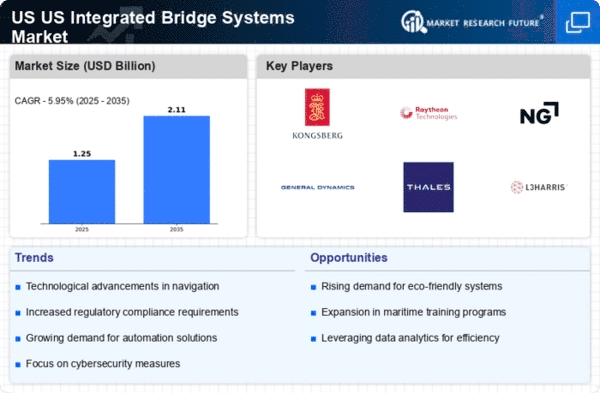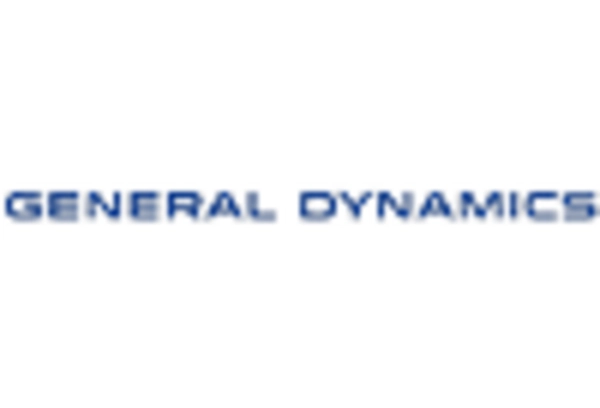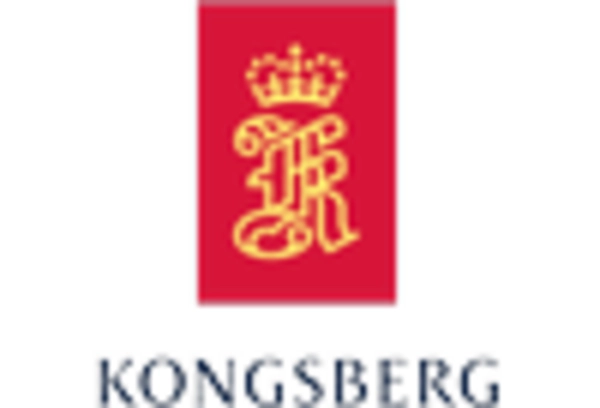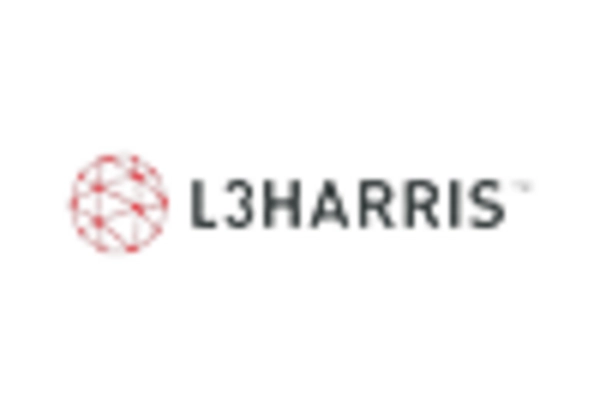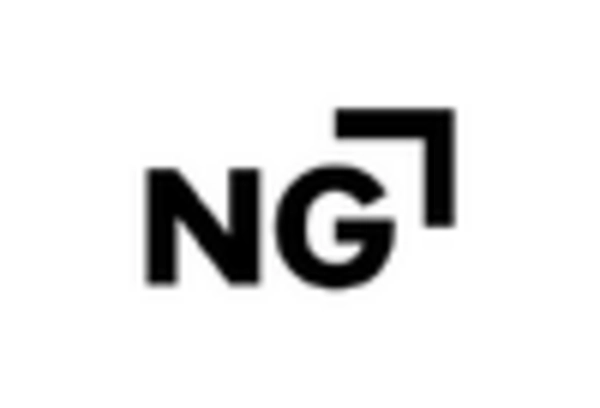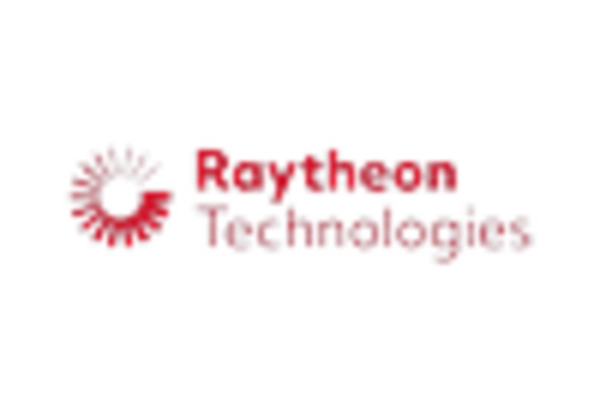The Integrated Bridge Systems Market in the US is characterized by a competitive landscape that is increasingly shaped by technological advancements and strategic collaborations. Key growth drivers include the rising demand for automation in maritime operations, enhanced safety protocols, and the integration of advanced navigation systems. Major players such as Northrop Grumman (US), Raytheon Technologies (US), and General Dynamics (US) are at the forefront, focusing on innovation and digital transformation to maintain their competitive edge. Their strategies, which encompass mergers and acquisitions, regional expansion, and partnerships, collectively contribute to a dynamic market environment that is both competitive and collaborative.
In terms of business tactics, companies are increasingly localizing manufacturing and optimizing supply chains to enhance operational efficiency. The market structure appears moderately fragmented, with several key players exerting considerable influence. This fragmentation allows for a diverse range of offerings, yet the collective strength of these major companies shapes the competitive dynamics significantly, as they vie for market share through differentiated products and services.
In December 2025, Northrop Grumman (US) announced a strategic partnership with a leading technology firm to develop next-generation integrated bridge systems that leverage artificial intelligence for enhanced decision-making capabilities. This move is likely to position Northrop Grumman as a leader in AI integration within maritime operations, potentially setting new standards for operational efficiency and safety in the industry.
In November 2025, Raytheon Technologies (US) unveiled a new suite of integrated bridge systems designed to improve situational awareness and reduce human error in navigation. This launch reflects Raytheon's commitment to innovation and aligns with the growing trend towards automation in maritime operations. The introduction of these advanced systems may enhance the company's competitive positioning by addressing the increasing demand for safer and more reliable navigation solutions.
In October 2025, General Dynamics (US) completed the acquisition of a smaller tech firm specializing in cybersecurity solutions for maritime applications. This acquisition is strategically significant as it not only expands General Dynamics' product portfolio but also enhances its capabilities in addressing the critical need for cybersecurity in integrated bridge systems. This move could potentially fortify the company's market position by offering comprehensive solutions that integrate safety and security.
As of January 2026, current competitive trends in the Integrated Bridge Systems Market are heavily influenced by digitalization, sustainability, and the integration of AI technologies. Strategic alliances are becoming increasingly vital, as companies seek to leverage complementary strengths to enhance their offerings. Looking ahead, it appears that competitive differentiation will evolve from traditional price-based competition to a focus on innovation, technological advancements, and supply chain reliability. This shift may redefine market dynamics, compelling companies to invest in cutting-edge solutions that meet the evolving needs of the maritime industry.


